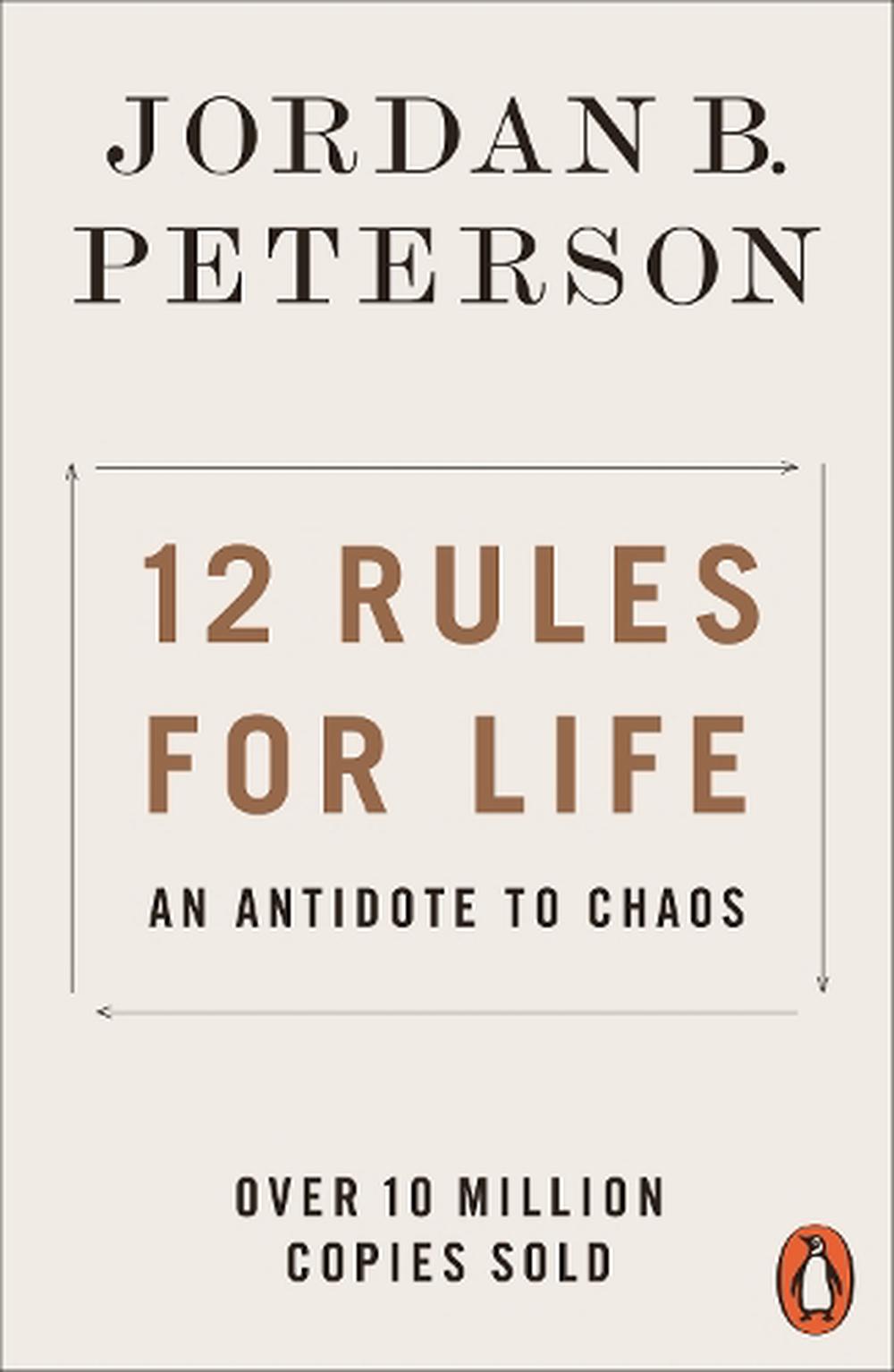
In a world that often feels overwhelmed by complexity and uncertainty, finding clear, actionable guidance for living a more purposeful and fulfilling life can be truly transformative. Many have discovered such profound direction in Jordan Peterson’s widely acclaimed 2018 self-help book, “12 Rules for Life: An Antidote to Chaos.” This remarkable work quickly ascended to bestseller lists across Canada, the United States, and the United Kingdom, selling over ten million copies worldwide by May 2023, testament to its resonant and impactful message. It’s more than just a book; it’s a global phenomenon that has inspired countless individuals to re-evaluate their approach to life’s inherent challenges.
Peterson, a Canadian clinical psychologist, distills invaluable life advice through a compelling blend of abstract ethical principles, practical psychology, rich mythology, and insightful personal anecdotes. His approach is designed to be empowering and actionable, offering readers concrete steps to make positive changes in their lives, fostering self-care, personal growth, and a holistic sense of well-being. Unlike his more academic previous work, “Maps of Meaning: The Architecture of Belief,” “12 Rules for Life” is written in an accessible style, making profound wisdom available to a broad audience eager for guidance.
This article delves into the first six of these powerful rules, offering a clear roadmap for personal development and an antidote to the chaos that can often define modern existence. Each rule serves as a pillar for building a stronger, more responsible, and more meaningful life, encouraging readers to integrate various aspects of physical, mental, emotional, and spiritual health. Let’s embark on this journey to unlock our potential and embrace a balanced, conscious lifestyle, drawing upon the expert-backed insights that have resonated with millions.

1. **Stand up straight with your shoulders back.**This powerful first rule is far more than a simple suggestion for good posture; it is a profound call to psychological and spiritual uprightness. To “Stand up straight with your shoulders back” is to consciously choose to “accept the terrible responsibility of life,” a fundamental assertion that resonates throughout Peterson’s work. It’s an invitation to confront the inherent suffering of existence not with withdrawal or defeat, but with courageous engagement and a commitment to personal agency.
This stance encourages individuals to rise above the temptation of victimization, a mindset that can hinder growth and keep one tethered to past grievances or external circumstances. Instead, Peterson advocates for self-sacrifice, urging us to consciously “conduct his or her life in a manner that requires the rejection of immediate gratification, of natural and perverse desires alike.” This means making difficult choices for long-term well-being and embracing the arduous path of self-mastery, rather than succumbing to fleeting impulses.
Peterson reinforces this idea by drawing parallels to natural examples, such as the neurological structures and behavior of lobsters, to illustrate the formation of social hierarchies and the biological imperative for asserting one’s place in the world. This is not about aggression, but about presenting oneself as competent, ready, and capable of handling life’s demands. It’s about embodying the strength to face challenges head-on, inspiring both self-respect and the respect of others. By standing tall, metaphorically and literally, you signal your readiness to engage with the world and take on your responsibilities.
This rule sets the stage for a mindset of resilience and self-possession, empowering you to navigate the complexities of life with confidence and resolve. It is a foundational practice for anyone seeking to overcome anxiety, project competence, and cultivate an inner strength that allows them to face the world with an open, yet firm, demeanor. It’s about taking your rightful place and consciously choosing to be a force for order in a chaotic world.
Read more about: Unmasking the Sedentary Threat: Hidden Health Dangers of Sitting All Day and Actionable Fixes

2. **Treat yourself like someone you are responsible for helping.**This rule addresses the common human tendency to be kinder and more diligent in caring for others than for ourselves. It challenges us to extend the same level of care, planning, and concern we would naturally offer to a loved one, or even a cherished pet, towards our own well-being. Peterson notes that this book “isn’t only written for other people. It’s a warning to me,” highlighting the personal application of this principle.
To treat yourself as someone you are responsible for helping means adopting a proactive and compassionate stance towards your own life. It involves recognizing your intrinsic value and understanding that you deserve the same meticulous attention and support you might offer to someone under your care. Melanie Reid, in her review for The Times, aptly describes the book as a “hardline self-help manual of self-reliance, good behaviour, self-betterment and individualism,” and this rule perfectly embodies that spirit.
This principle is about recognizing that neglect of oneself can have far-reaching consequences, not just for the individual but for everyone around them. It calls for structured self-care, establishing healthy routines, making wise choices for physical and mental health, and engaging in constructive self-talk. It asks you to consider your future self as a person you are obligated to protect and nurture, investing in their potential and safeguarding their well-being, much like a good parent would a child.
By internalizing this rule, you begin to foster a deeper sense of self-respect and establish habits that contribute to a flourishing life. It empowers you to prioritize your needs without guilt, understanding that a well-cared-for individual is better equipped to contribute positively to their community and navigate their own challenges. It’s a call to become your own best advocate and guardian, cultivating a robust foundation for lasting health and personal growth.

3. **Make friends with people who want the best for you.**This rule speaks to the profound impact of our social environment on our personal growth and overall well-being. It underscores the critical importance of selecting your companions wisely, choosing those who genuinely uplift and support your aspirations, rather than those who might drag you down or enable self-destructive behaviors. This principle aligns with the book’s overarching theme of taking responsibility for one’s life and choosing to transcend suffering rather than withdraw into a “suicidal gesture.”
Surrounding yourself with individuals who genuinely desire your success and happiness creates a powerful positive feedback loop. These are the friends who will celebrate your achievements, offer constructive criticism when needed, and stand by you through difficulties, encouraging you to embody your best self. Their presence helps you to “Stand up straight with your shoulders back” by reinforcing your decision to take on life’s terrible responsibility, rather than succumbing to cynicism or despair.
Conversely, associating with those who are cynical, resentful, or who consistently undermine your efforts can subtly, but powerfully, erode your motivation and self-esteem. Peterson implies that people have a choice either to withdraw, which is a “suicidal gesture,” or to face and transcend suffering. The right friendships can provide the necessary external support to face challenges, while toxic ones can lead to a withdrawal that exacerbates chaos in one’s life. This rule becomes an actionable step towards creating an environment that fosters growth.
Cultivating such a supportive network requires conscious effort and discernment. It means being brave enough to disengage from relationships that are demonstrably harmful and actively seeking out those who inspire you towards self-betterment. By choosing friends who champion your potential, you build a resilient social structure that empowers you to pursue what is meaningful and confront the “darkness” that can turn individuals into “monsters they’re capable of being” in the right situations. It’s a vital component of creating order in your personal world and achieving a balanced, conscious lifestyle.
Read more about: Beyond the Search Bar: Your Ultimate Guide to Why Millions Are Hooked on the Bing Homepage Quiz Daily

4. **Compare yourself to who you were yesterday, not to who someone else is today.**This rule is a potent antidote to the pervasive discontent that often arises from endless social comparison, particularly in our interconnected world. Peterson asserts that genuine self-improvement stems from looking inward and measuring your progress against your own past self, rather than falling into the trap of comparing your unique journey to the highlight reels or perceived successes of others. This directly addresses the pitfall of tying one’s self-worth to external metrics, a path that can lead to feelings of inadequacy and failure.
If the meaning of life is erroneously equated with happiness, then unhappiness immediately renders one a failure, as Peterson wisely observes: “It’s all very well to think the meaning of life is happiness, but what happens when you’re unhappy? Happiness is a great side effect… But it’s fleeting and unpredictable. It’s not something to aim at – because it’s not an aim. And if happiness is the purpose of life, what happens when you’re unhappy? Then you’re a failure.” This rule implicitly guides us to a more sustainable measure of success: consistent, incremental personal growth.
Focusing on yesterday’s self liberates you from the paralyzing effects of envy and the unrealistic expectations often set by external comparisons. It empowers you to acknowledge your own unique starting point, celebrate your small victories, and learn from your own missteps. This internal focus fosters a sense of progress that is deeply personal and genuinely motivating, rather than a fleeting validation dependent on outperforming others. It encourages a holistic view of personal development, recognizing that true progress unfolds on its own unique timeline.
Embracing this principle cultivates patience, self-compassion, and a relentless commitment to your individual path. It allows you to become your own benchmark for success, fostering an empowering sense of self-reliance that aligns with the MindBodyGreen philosophy of actionable advice and positive transformation. By shifting your focus from outward comparisons to inward improvement, you lay the groundwork for a more robust and enduring sense of self-worth, making each day an opportunity for genuine personal evolution.

5. **Do not let your children do anything that makes you dislike them.**This provocative rule delves into the often-challenging realm of effective parenting and the critical need for establishing clear boundaries. Peterson highlights a significant societal issue in “the upbringing that ignores differences between boys and girls (criticism of over-protection and tabula rasa model in social sciences).” This over-protection and refusal to acknowledge innate differences can lead to a generation ill-equipped to face the demands of the world, fostering behaviors that are ultimately detrimental to the children themselves and those around them.
The rule isn’t about fostering resentment towards one’s offspring, but rather about cultivating a healthy, respectful relationship built on appropriate discipline and well-defined expectations. If children are allowed to engage in behaviors that make them genuinely unpleasant, it creates a negative dynamic that harms both the parent-child bond and the child’s ability to navigate social situations effectively. It’s an empowering call for parents to reclaim their authority and guide their children towards becoming responsible and well-adjusted individuals.
By disallowing behaviors that foster dislike, parents are essentially teaching their children vital social skills, empathy, and self-control. This firm yet loving approach helps children understand the consequences of their actions and learn the value of respect, both for themselves and for others. It prevents the development of entitled or tyrannical behaviors that can make children (and eventually adults) deeply unpopular and isolated. This rule advocates for a balanced upbringing that combines support with necessary challenges.
Ultimately, this rule is about equipping children for a meaningful and successful life in a world of both chaos and order. It’s about instilling the values that lead to self-reliance and good behavior, rejecting the coddling that can cripple their capacity for genuine growth. By setting clear parameters and fostering admirable traits, parents help their children become individuals who are not only liked but also respected, capable of pursuing what is meaningful and contributing positively to society.
6. **Set your house in perfect order before you criticize the world.**This profound rule serves as a powerful call to introspective accountability, urging individuals to first address the chaos within their own lives and immediate environments before venturing to critique or reform the broader world. It reflects a central theme of Peterson’s philosophy: that meaningful change begins at the individual level, through personal responsibility and diligent self-improvement. The book champions a move away from external blame and towards an internal locus of control.
To “Set your house in perfect order” means to meticulously examine and rectify the aspects of your life that are within your direct control – your habits, your relationships, your physical surroundings, and your personal integrity. This includes addressing disorganization, procrastination, unresolved conflicts, and any areas where you are not living up to your own ethical standards. It’s an act of personal empowerment, recognizing that you hold the primary power to shape your immediate reality.
This rule implicitly criticizes the “lack of respect for the values that built Western society” by encouraging individuals to embody those values themselves through personal effort and self-discipline. It’s a practical and actionable step, aligning with the idea that individuals should “take responsibility to search for meaning above their own interests.” It suggests that a person who has demonstrated the capacity to bring order to their own life gains credibility and wisdom to speak about larger societal issues.
By diligently working to establish order in your personal domain, you develop the character, discipline, and understanding necessary to approach complex global problems with greater efficacy and less hypocrisy. This principle reminds us that genuine transformation radiates outwards; a stable, well-ordered individual is far better equipped to contribute positively to the world than one who is mired in personal chaos. It is the ultimate act of self-care and social responsibility, paving the way for a holistic and meaningful existence.
As we journey deeper into the profound wisdom offered by Jordan Peterson, we now turn our attention to the second half of his transformative rules, moving from establishing foundational self-responsibility to embracing truth, meaning, and mindfulness. These remaining six rules provide further expert-backed insights into cultivating a truly purposeful existence, inviting us to look beyond immediate gratification and engage with the world with honesty, humility, and presence. They are designed to empower us to make conscious choices that foster not just individual well-being, but also a more harmonious interaction with the broader world, cementing our path toward a balanced and conscious lifestyle. Each principle acts as a vital compass, guiding us through the complexities of life with an uplifting and actionable framework for profound personal development.
Read more about: The ’00s Legend Returns: How T.O.P Dominated the Charts and Shaped a Generation’s Sound, Plus His Epic Journey Beyond Music

7. **Pursue what is meaningful (not what is expedient).**This rule stands as a cornerstone of Peterson’s philosophy, encouraging us to seek a deeper, more enduring purpose in our lives rather than falling prey to the allure of fleeting pleasures and easy solutions. It challenges the conventional, yet often disappointing, notion that the meaning of life can simply be equated with happiness. While happiness is a wonderful side effect, Peterson wisely notes that “it’s fleeting and unpredictable. It’s not something to aim at – because it’s not an aim.”
To chase happiness as an ultimate goal risks rendering us failures when unhappiness inevitably arrives, as it does for everyone. Instead, by pursuing what is meaningful, we engage with an intrinsic human instinct for ethics and purpose, taking responsibility to seek something greater than our immediate interests. This pursuit offers a stable foundation, providing resilience and direction even amidst life’s inherent suffering. It’s an empowering shift from a reactive state to a proactive commitment to our highest values.
Peterson illustrates this profound concept by drawing on both contemporary stories, like Pinocchio, The Lion King, and Harry Potter, and ancient narratives from the Bible. These enduring tales consistently highlight characters who choose arduous, meaningful paths over convenient, self-serving ones, ultimately leading to growth and redemption. By aligning our actions with what resonates deeply and authentically, we tap into a universal truth that transcends momentary comfort, allowing us to cultivate a life rich in purpose and lasting satisfaction.

8. **Tell the truth – or, at least, don’t lie.**This seemingly straightforward rule holds immense power for personal integrity and creating an ordered existence in a chaotic world. Peterson implicitly argues that truth is the bedrock upon which a meaningful life is built, an essential ethical principle that underpins all healthy relationships and self-respect. Deliberate deceit, even in its smallest forms, introduces distortion and instability into our lives, creating a reality that is increasingly difficult to navigate.
When we choose to speak truthfully, we are making a conscious decision to align our words with reality, even when that reality is uncomfortable or challenging. This act of courage fosters an internal strength and clarity, empowering us to confront issues head-on rather than constructing elaborate, fragile fictions. Lies, by their very nature, demand more lies to sustain them, trapping us in a self-made web of increasing complexity and anxiety that actively sabotages our personal growth.
Embracing this rule is an actionable step toward a more authentic and responsible life. It demands a commitment to seeing things as they are, acknowledging our own shortcomings, and communicating with genuine intent. By prioritizing truth, we establish a robust foundation for self-betterment, fostering trust with others and, perhaps most importantly, with ourselves. This disciplined approach to honesty is a powerful antidote to the societal chaos often fueled by misinformation and insincerity.
Read more about: The Unspoken Code: Why the Rules of Engagement Cast May Never Reunite (And What It Means for TV’s Beloved Legacies)

9. **Assume that the person you are listening to might know something you don’t.**In an age of abundant information, this rule champions intellectual humility and the profound power of genuine listening. It encourages us to approach every interaction with an open mind, recognizing that everyone possesses a unique perspective shaped by their experiences, knowledge, and insights. This isn’t just about politeness; it’s a strategic approach to expanding our own understanding and fostering meaningful connections.
Adopting this assumption transforms conversations from mere exchanges of information into opportunities for genuine discovery. It requires us to suspend judgment and actively engage, allowing for the possibility that our own worldview, while valid, may not be complete. Peterson’s own work is built on distilling invaluable life advice, often drawing from diverse fields, underscoring the value of varied perspectives. By truly listening, we honor the speaker and open ourselves to new ideas that can enrich our personal and holistic well-being.
This principle empowers us to learn continuously, challenging any tendencies towards intellectual arrogance or closed-mindedness. It helps us build stronger, more respectful relationships by validating others’ contributions and fostering a collaborative spirit. In a world craving connection and mutual understanding, the practice of assuming others might hold valuable knowledge becomes an incredibly potent tool for personal development and for bridging divides, leading to a more informed and harmonious existence. It is an accessible yet profound step towards continuous growth.

10. **Be precise in your speech.**Precision in language is a powerful tool for bringing order to both our internal thoughts and our external world. This rule emphasizes the critical importance of communicating with clarity, specificity, and intentionality. Vague or imprecise speech often reflects muddled thinking and can lead to misunderstandings, unresolved conflicts, and a pervasive sense of chaos in our lives and relationships.
When we commit to being precise, we are forced to clarify our own thoughts and intentions. This internal discipline translates into external effectiveness, allowing us to articulate our needs, desires, and observations with greater accuracy. Such clarity is essential for problem-solving, whether in personal dilemmas or professional challenges, enabling us to define issues sharply and pursue actionable solutions that truly align with our goals. It is a fundamental practice for anyone seeking to empower themselves and minimize needless confusion.
Moreover, precise speech demonstrates respect for those we are communicating with, as it minimizes the burden on them to interpret our meaning. It builds trust and fosters more productive interactions, reinforcing the idea that we are responsible agents in our communications. By refining our language, we refine our minds, creating a more ordered, coherent, and meaningful existence where our words carry weight and our intentions are clearly understood, leading to more positive and constructive outcomes in all areas of life.
Read more about: 12 Fascinating Facts About ‘Hello’ You Never Knew Had Such a Rich History

11. **Do not bother children when they are skateboarding.**At first glance, this rule might seem whimsically specific, yet it carries a profound message about fostering resilience, independence, and the capacity to face life’s inherent challenges. Peterson’s work often critiques the “upbringing that ignores differences between boys and girls” and the pitfalls of “over-protection,” which can cripple a child’s capacity for genuine growth. This rule is a call to allow children to test their limits, engage with the world, and develop their competence without undue adult interference.
Skateboarding, like many challenging activities, involves risk, failure, and the incremental mastery of skills. When adults constantly intervene or shield children from these experiences, they inadvertently strip them of opportunities to learn grit, perseverance, and self-reliance. This rule advocates for a balanced approach to parenting, where support is tempered with the necessary space for children to confront obstacles and discover their own capabilities. It’s about empowering the next generation to become responsible and capable individuals, rather than coddling them into dependency.
By stepping back and allowing children to navigate their own physical and social challenges, we help them develop a crucial sense of agency and the ability to cope with frustration and minor injuries. This prepares them to “Stand up straight with their shoulders back” as adults, ready to “accept the terrible responsibility of life.” It’s an important lesson in fostering strength and character, ensuring children are equipped to pursue what is meaningful and contribute positively to a complex world, embodying a holistic approach to their development.

12. **Pet a cat when you encounter one on the street.**This final rule offers a beautifully simple yet deeply profound insight into coping with life’s inevitable suffering and finding solace amidst chaos. Peterson eloquently outlines this in the context of personal struggle, specifically his daughter’s rare bone disease, and how to maintain a “watchful eye on, and cherish, life’s small redeemable qualities.” It’s an actionable invitation to embrace mindfulness and gratitude in the face of overwhelming adversity.
When life feels heavy and circumstances are beyond our control, this rule teaches us the importance of shortening our “temporal scope of responsibility”—focusing on the immediate moment rather than distant, daunting futures. Taking a moment to connect with a living creature, to feel its fur, hear its purr, or simply appreciate its independent presence, is a powerful act of grounding. It brings us into the present, allowing us a brief respite from existential burdens and reminding us of the simple beauties that persist even in difficult times.
This practice is a potent form of self-care, a conscious choice to seek out and appreciate the small, positive moments that make life bearable and, indeed, worth living. It encourages us to cultivate an optimistic and supportive inner voice, fostering a sense of hope and possibility even when faced with tragic events. By embracing this rule, we not only nurture our own emotional well-being but also deepen our connection to the world around us, finding meaning and peace in the most unexpected of encounters. It is a beautiful call to cherish life’s tender moments, transforming our existence through simple, conscious acts of connection.
Read more about: Unlocking Adventure: 14 Must-Try, Affordable Weekend Getaways Near New York City for Every Explorer
Embarking on this journey through Jordan Peterson’s “12 Rules for Life” is more than just reading a book; it’s an invitation to a profound transformation. From standing tall with responsibility to finding joy in the smallest interactions, these rules provide an empowering, actionable roadmap to navigate life’s chaos with strength, integrity, and purpose. They encourage us to continually evolve, to confront our challenges head-on, and to build a life that is not merely endured, but truly lived, day by day, moment by moment. It’s about embracing every aspect of our well-being—physical, mental, emotional, and spiritual—to forge a path towards a balanced, conscious, and deeply meaningful existence. We hope this exploration inspires you to integrate these powerful principles, fostering positive change and unlocking your fullest potential.





